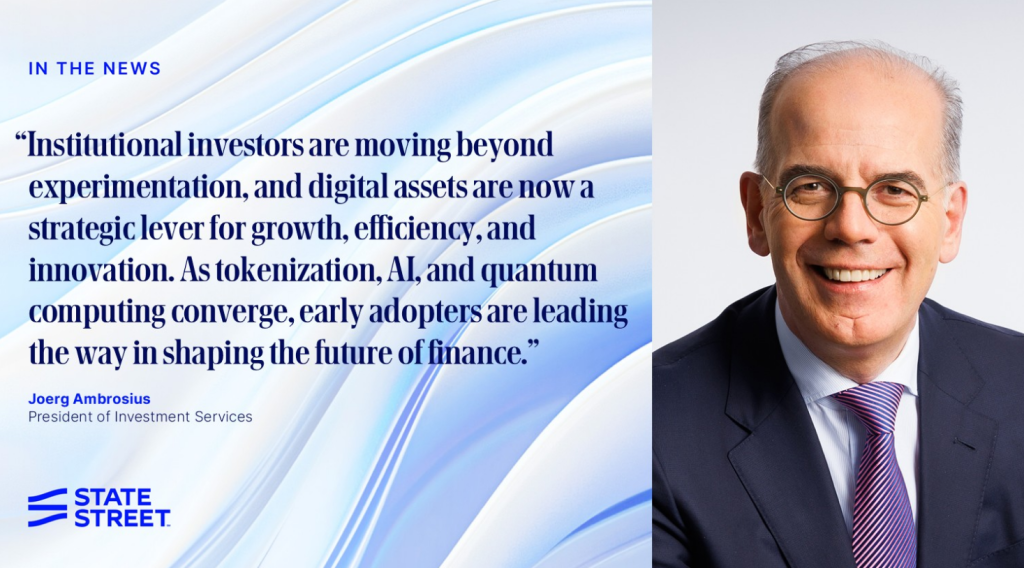According to State Street’s 2025 global research, major investors are moving beyond mere trials and are making substantial commitments to digital assets and blockchain technology.
Nearly 60% of the institutional investors surveyed indicate plans to increase their crypto holdings within the year. Average exposure is projected to double over the next three years, reflecting concrete intentions instead of just talk.
Institutions Are Increasing Digital Asset Allocations
Reports have shown that private markets are the initial focus. Private equity and private fixed income are leading the way in tokenization, as firms aim to make illiquid assets more accessible for trading.
By 2030, most respondents anticipate that 10–24% of institutional investments will be executed through tokenized instruments. This marks a significant shift from earlier pilot projects and proof of concepts.
Our 2025 global research on #digitalassets and emerging technologies indicates a clear shift in adoption and strategic commitment among institutional investors towards #tokenization and blockchain-enabled transformation. Learn more: https://t.co/hzk1f3dZ1O pic.twitter.com/tULwI2Ke88
— State Street (@StateStreet) October 9, 2025

Benefits Highlighted by Investors
Investors articulated several reasons behind this movement. Increased transparency was identified by 52% of respondents as a significant advantage. Faster trading was noted by 39%, while 32% mentioned reduced compliance costs.
Almost half of those surveyed expect cost reductions exceeding 40% due to enhanced transparency. Such figures clarify why many firms are taking action now rather than postponing.
Operational Changes in Progress
According to reports, the transition encompasses more than just portfolio adaptations. Forty percent of respondents already have dedicated digital assets teams or business units. Nearly a third indicated that blockchain and related digital operations are integral to their broader digital strategies.
Joerg Ambrosius, president of Investment Services at State Street, remarked that institutional clients are leveraging these tools as key drivers for growth and efficiency, rather than just conducting experiments.
Donna Milrod, chief product officer at State Street, noted that firms are establishing teams and developing new products such as tokenized bonds, on-chain wrappers, stablecoins, and tokenized cash.
One in five firms plan on forming new digital asset groups soon. This indicates that organizational changes will accompany the capital investments. Many managers are revising workflows and hiring staff with blockchain expertise.
At the same time, over half of the respondents believe that generative AI and quantum computing could have a larger impact on investment operations than tokenization alone, although most view these technologies as complementary rather than substitutes.
The survey included senior executives from various regions and institutional sizes, examining both strategic and operational preparedness.
Featured image from Unsplash, chart from TradingView

